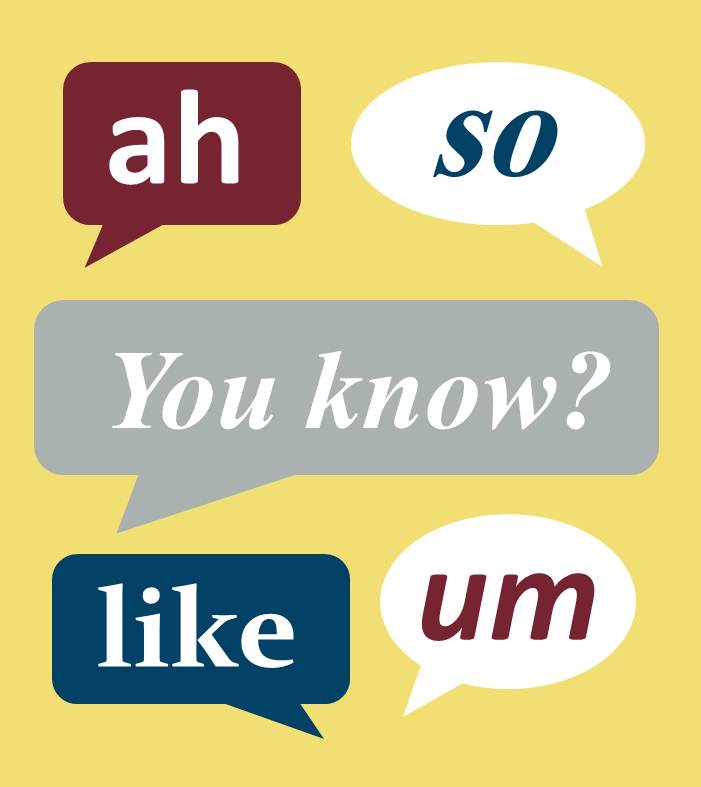Ah . . . Um . . . You know, filler words are, like, bad when they are excessive.
While I’m not in the militant camp that feels they need to be eliminated entirely, I do feel most people could reduce their use. Filler words can be distracting and they can reduce your credibility, making you look uncertain.
Filler words include:
- actual words and phrases that are used without adding to the meaning of what you are saying (such as so, like, you know, okay, actually and the use of and which results in run-on sentences)
- sounds: ah, um, er
Filler words typically occur when a person is filling air space while composing a thought. Sometimes they increase when a person is nervous or feeling pressured. They do serve a linguistic function. According to recent research, the use of filler words in conversation signals that a delay is coming, which helps the speaker avoid a silent gap in conversation that might otherwise prove confusing (it also lets the listener know you are not done with your turn in talking).
Personally, I’ve noticed that most people use fewer filler words, at least of the “ah” and “um” variety, in conversation than they do in speaking. This led me to informally observe when speakers say “uh” or “um” in presentations. These fillers most often occur when the speaker is not making eye contact. The speaker typically breaks eye contact (if they had it in the first place) and looks off to the side, thinking and saying, “ah” or “um.”
What can you do to reduce filler words:
1. Record & Measure: Find out just how bad it really is. As the saying goes, “You can’t manage what you don’t measure.” Video or audio record yourself. If you are aware of your APM (Ahs Per Minute), you can work on reducing it. Rejoice in small victories.
2. Make eye contact. Don’t speak unless you are making eye contact with an individual. Don’t speak while looking at notes (look at your notes, look up and THEN speak) and don’t speak when if you look away while you are trying to come up with the right word. Just be silent.
3. Be quiet. Silence is golden. Focus on using pauses instead of filler words.
4. Join Toastmasters! Most Toastmasters clubs have an ah-counter who will record your use of filler words. In some clubs an audible sound (such as a click) is made to make you immediately aware of your use of a filler word. While this may be unnerving, it is very effective. In a speech class for teens that I taught last year, one young man, over the course of 7 speeches in the semester, reduced his ahs from 55 in a 5-7 minute speech to only 1!
Open your mouth and don’t say, “Ah.”

